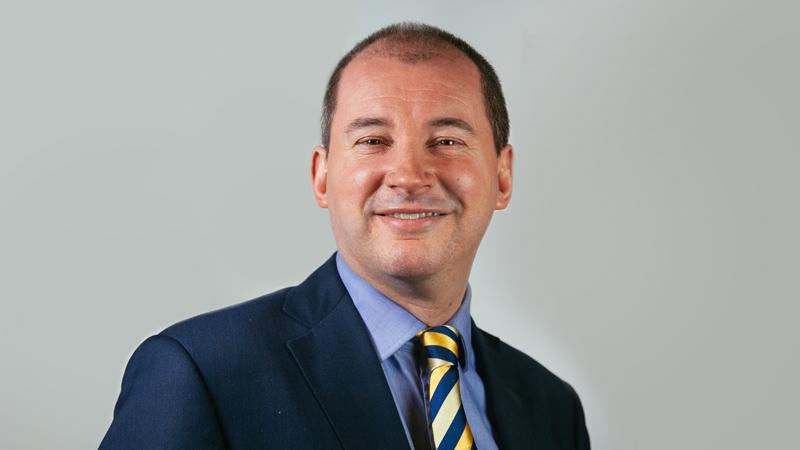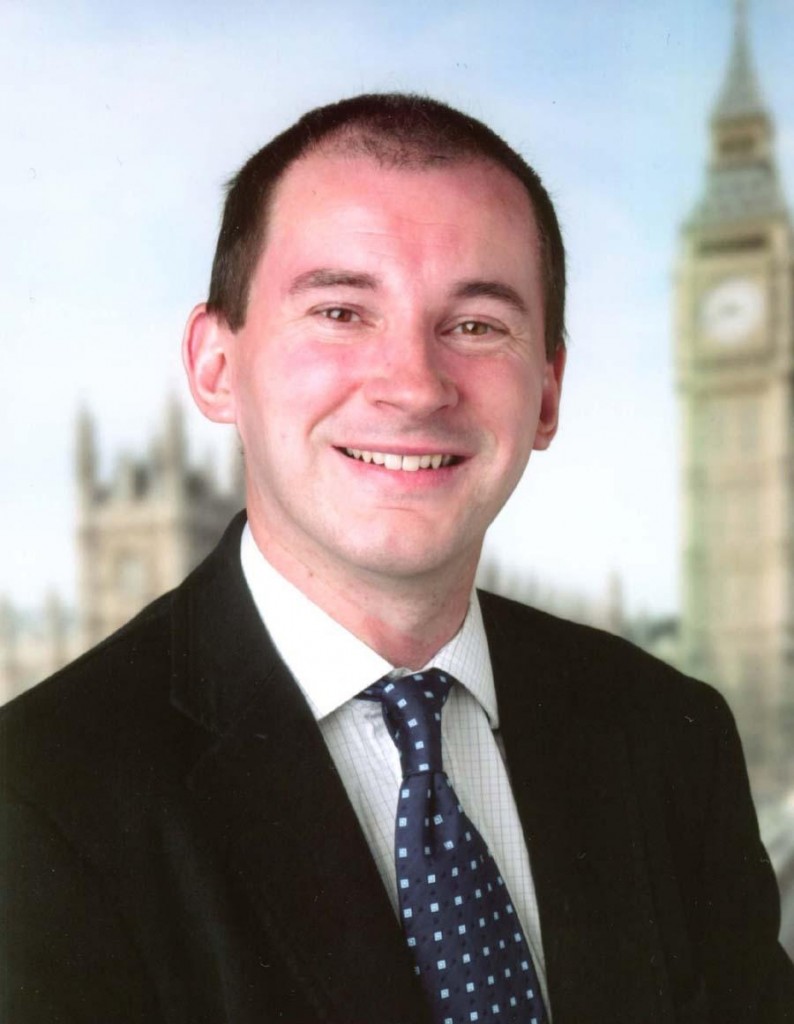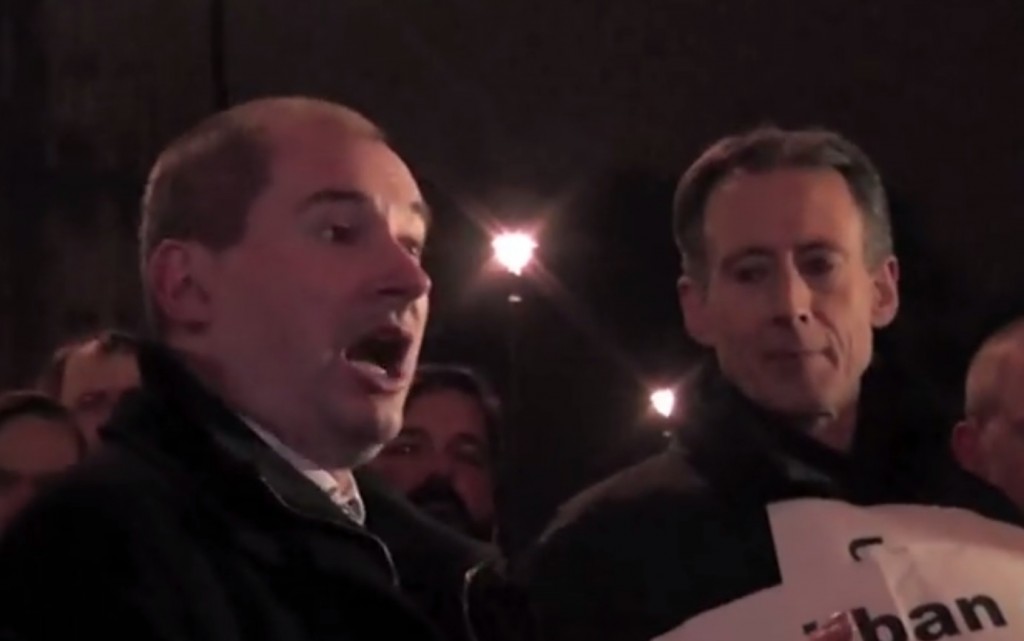Out in parliament: Attitude speaks to Lib Dem MP Stephen Williams
By Will Stroude

As we get ready to cast our vote in the general election, Attitude speaks to some of Britain’s most prominent LGBT MPs about being out and proud in parliament in 2015.
Stephen Williams served as MP for Bristol West from 2005 to 2015, is standing for re-election next month, and was the party’s first ever openly gay MP.
“Having gay MPs is important for society. I can stand in front of school groups and if the talk goes that way, I can mention I have campaigned on homophobic bullying because I was a victim of it.”
Though Labour spent most of the ‘90s and ‘00s as the political instigators of most of the gay rights legislation we as citizens currently enjoy, the party doesn’t actually have the best record when it comes to the votes themselves.
That accolade falls with the Liberal Democrats, who didn’t see a single MP vote against legal changes including same-sex adoption, civil partnerships, the repeal of Section 28 and gender recognition for trans people – inarguably stellar statistics, but ones which make the tribulations the party has faced when it’s come to its own gay representatives all the more surprising.
There’s Yeovil MP David Laws, who was simultaneously outed and forced to resign from the front bench after a grand total of 17 days as Chief Secretary to the Treasury in 2010 after it emerged he had claimed almost £40,000 in rent that was paid to his secret same-sex partner, and it’s still less than a decade since former leadership contender Simon Hughes – having been involved in the infamous Bermondsey by-election against Peter Tatchell in 1983 – spent the majority of January 2006 denying he was gay, until The Sun told him they had proof he’d been using gay chat service ‘Man Talk’. He later confirmed he was bisexual.
It’s these uncomfortable events which make the career of Bristol West MP Stephen Williams all the more exceptional: While Labour’s Chris Smith became Britain’s first openly gay MP when he came out during a public rally in 1984 and Alan Duncan became the first self-outed Tory in 2002, Stephen’s election in 2005 was notable not only for making him the first openly gay Liberal Democrat MP ever, but for being the first time a parliamentary candidate had become an MP after being open about their sexuality from the off, instead of waiting for the cushion of position – or dreaded phone call from the tabloids – before coming out publicly.
For the 48-year-old former Parliamentary Under Secretary of State for Communities and Local Government (and sometime Attitude reader), embarking on a political career from the confines of the closet was never an option. He admits that “everyone obviously knew I was gay” by the time he got involved with politics aged just 17, moved by the health and education inequalities he had witnessed growing up on free school meals.
“Ironically, I’m the only government minister who was on free meals at school, so I come from quite a different demographic to a lot of people who are in parliament,” he adds.
Stephen address a pro-equal marriage rally outside Westminster alongside human rights campaigner Peter Tatchell, February 2013.
While the Labour party might have adopted the gay rights agenda in principle in the mid-1980s – as last year’s BAFTA-winning Pride reminded us – Stephen, who was raised in a South Wales mining community not dissimilar to the subject of that film, makes the oft-forgotten point that much of the party’s membership were not immune from the rampant homophobia that characterised Thatcher’s government at the time.
“The local Labour party were not an attractive bunch in terms of their attitudes,” he says, citing it as one of the many factors that led him to joining the then SDP-Liberal Alliance, who had “the most enlightened outlook on those issues”.
“So that’s why I ended up in the Lib Dems”, he explains. “And obliviously over the last 20 years we have been at the forefront of campaigning for the rights of gay men and women, as well as being instrumental in bringing them about”.
Regardless of party allegiance, Stephen was instrumental in that historic change personally as equal marriage was forged in the last parliament, serving as the Lib Dem representative on the public bill committee and tabling – sadly unsuccessful – amendments which would have allowed opposite sex couples to enter civil partnerships and for recognition to be given to humanist marriages. During the equal marriage debates he spoke passionately as a gay man about the vote’s historic nature, telling his Commons colleagues.
“Much of what we do in this Chamber ends up being the ephemera of history, but what we are doing today will be much more profound and will be remembered for a long time. It will bring genuine change in our country. What we do will be looked upon kindly by history.”
Those amendments are something he still strongly believes in, and while same-sex marriage finally heralded the last big slice of gay equality in Britain, Stephen remembers all too well the struggles he faced when he first stood for election in 2001, when standing as an openly gay candidate was a big story, both in local Bristol and the wider media.
“I received a moderate amount of homophobic abuse and hate mail,” he recalls. “Our canvassers on the door were getting, you know, ‘I would have voted for him until I found out he was gay.’ On polling day itself, when we were reminding supporters to vote, some people said ‘Well I’m not voting for him anymore’… It was talked about quite a lot”.
When he eventually won Bristol West just four years later – post-civil partnerships, same-sex adoption and the repeal of Section 28 – his sexuality was “barely an issue at all” however.
“Now, that could be that people simply got used to the fact that I was no longer a novelty, but also in those four years society had moved on quite a bit as well,” he explains.
While the furore may have died down in that intervening period – and though 2015 sees a healthy and ever-increasing number of gay parliamentarians – Stephen admitted only last year that his sexuality can still be the subject of dirty politics: “There’s a possible concern that some of my opponents tried to stir things up against me among my Muslim electorate,” he revealed, adding pointedly: “Don’t go assuming the Labour party are nice people”.
“If you want to challenge a variety of issues then getting involved in politics is the best way to do it and I would encourage people.”
Should that make the gay parliamentarians of the future wary though? Stephen believes it’s probably less of an issue in politics than it remains in many other occupations – “sport being the obvious one” – and that sexuality in Westminster has become less and less relevant with each passing year.
“I would say being out is an individual decision and it’s not for anyone else to say when it’s the right time and when it isn’t, because there are a whole load of factors that come into it, including when you’re ready, whether your family knows and so on. However I do think it’s important, particularly for young people, to see whether it’s in politics or business or entertainment or sport that being gay is entirely normal, so it’s easier for young people to come to terms with it themselves.”
The representation of minorities – sexual, racial or gender-based – in parliament isn’t a matter of symbolic box-ticking however: The platform given to those underrepresented voices can have a powerful real-world effect, as Stephen demonstrated himself in 2006, when just a year into his role as MP he launched a campaign against homophobic bullying and organised the Education and Skills Select Committee’s first ever inquiry into the issue in schools.
“Parliament needs to represent the British public and it doesn’t in terms of how it looks and feels,” argues Stephen. “There aren’t enough women, there aren’t enough people from ethnic minorities, there aren’t enough people who have just done other things with their life other them living in a political bubble.
“Certainly having gay MPs is important for society. I can stand in front of school groups and if the talk goes that way, I can mention I have campaigned on homophobic bullying because I was a victim of it in school; or if people ask am I married and do I have children, I can say no I’m not, but if I was it would be to a man, and I think that’s important.”
While he admits there are “always ‘T’s to be crossed and ‘I’s to be dotted”, Stephen believes that current legislation for gay people in the UK is “broadly right”, and that attention should now be paid to changing social attitudes across the board. When it comes to actually implementing and – just as importantly – maintaining that change in Britain, he makes no bones about where the LGBT community should throw their support on May 7th.
“We are the Liberal vote in British politics. We are the party that has stood up for civil rights most consistently in general but especially for the rights of gay people – long before any other party was interested in that agenda.
“I think it’s important that whatever configuration of government we end up with after this election, that there continues to be a strong liberal voice in parliament.”



